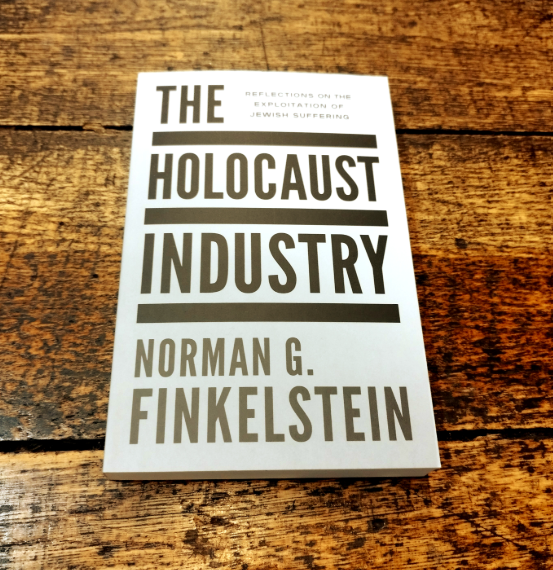Reading The Holocaust Industry by Norman G. Finkelstein was one of the toughest intellectual challenges I have encountered. The writing style, dense with references and often unrelenting in its critique, made it difficult to follow at times. Yet, I pushed through because the book tackles a subject that is both historically significant and deeply controversial—the political and financial exploitation of Holocaust memory.
Finkelstein is not an outsider to this history. His own family were Holocaust survivors—his parents endured the Warsaw Ghetto and concentration camps, and most of his extended family perished in Nazi extermination programs. This background makes his critique even more striking, as it comes from someone personally connected to the tragedy. Yet, he does not shy away from attacking what he sees as the manipulative use of Holocaust memory for financial and political gain.
One of his most provocative claims is that Jewish organizations have, at times, exaggerated or even fabricated stories of persecution to justify financial compensation. He does not deny that the Holocaust happened, nor does he dismiss the suffering of those who endured it. Instead, he argues that the definition of “survivor” has been deliberately expanded to include not just those who were imprisoned in Nazi concentration camps, but also those who fled, went into hiding, or even their descendants. By broadening this definition, he claims, Jewish groups have been able to demand increasing sums in reparations, often under the guise of helping survivors—though much of this money, he argues, has gone elsewhere.
The most glaring example of this, according to Finkelstein, is the case of Swiss banks. He details how Jewish organizations lobbied aggressively against Swiss financial institutions, accusing them of hoarding Jewish assets from World War II. Under immense pressure, these banks eventually agreed to a multi-billion-dollar settlement, but Finkelstein contends that much of this money did not reach actual survivors. The same process applied to Germany, which has paid enormous sums in reparations, often under coercion. He questions who truly benefited—the survivors themselves or the bureaucratic networks managing these settlements.
Beyond financial exploitation, Finkelstein argues that Holocaust reparations played a significant role in the establishment and expansion of Israel. He claims that compensation payments from Germany, extracted through diplomatic and economic pressure, were instrumental in funding the early Zionist state. The billions of dollars received in reparations helped Israel develop its military and infrastructure, strengthening its position in the Middle East. He sees this as part of a larger pattern in which Holocaust memory is used to shield Israel from criticism, particularly regarding its treatment of Palestinians. He accuses Jewish organizations and Israeli officials of leveraging Holocaust guilt to justify political actions, making any critique of Israel’s policies risk being labeled as anti-Semitic.
Despite its powerful arguments, the book is not an easy read. Finkelstein’s writing is dense, and his tone is often confrontational, making it difficult to process at times. Yet, beneath the intensity, his core arguments challenge deeply ingrained narratives. The book forces readers to question not just how the Holocaust is remembered, but who controls that memory and for what purpose.
For me, this book was more than just an academic critique—it was an unsettling yet necessary confrontation with the power of historical memory. The Holocaust was one of humanity’s greatest tragedies, but The Holocaust Industry compels us to ask whether its memory has been used to serve interests beyond those of the victims and their descendants. The book does not dismiss the suffering of the Holocaust, but it demands accountability for how its legacy has been shaped, monetized, and weaponized for geopolitical purposes. In doing so, Finkelstein has written a book that, whether one agrees with him or not, refuses to be ignored.

